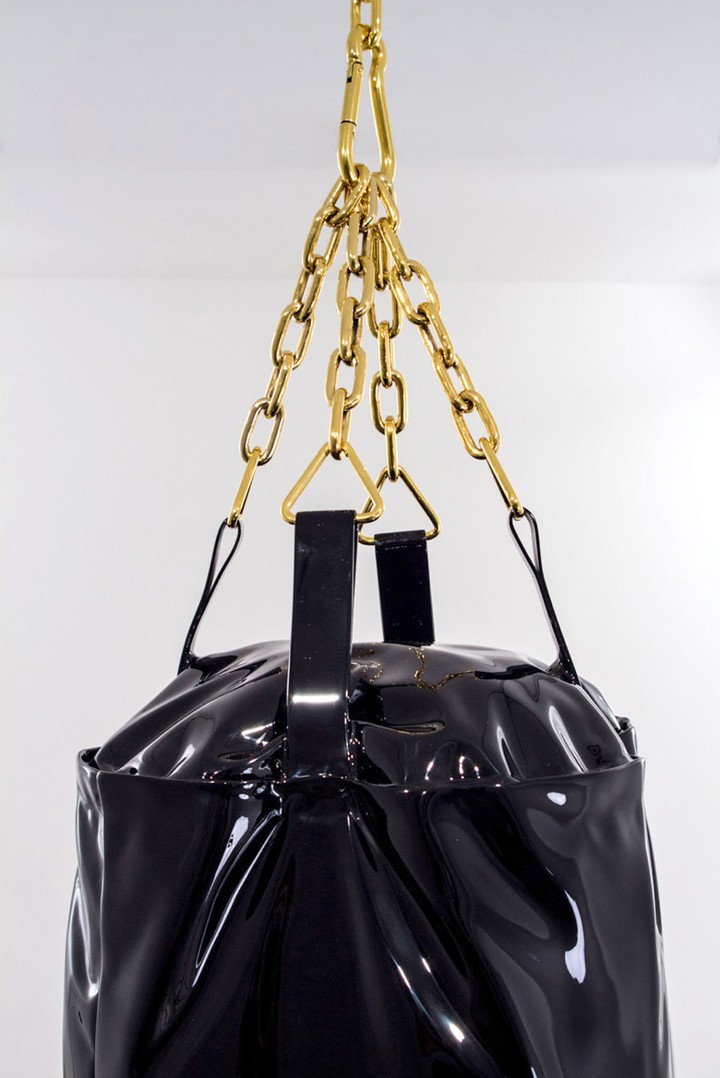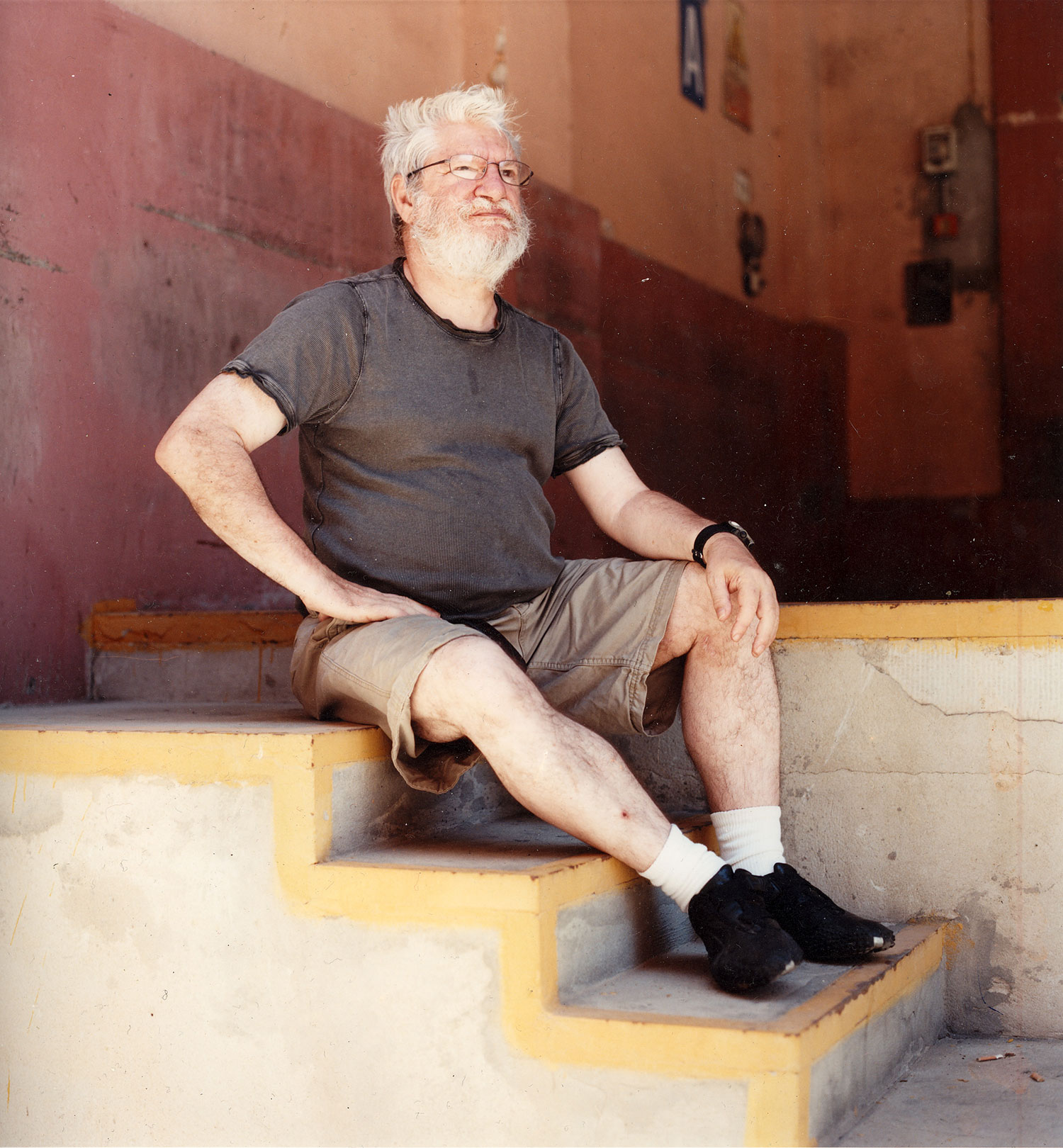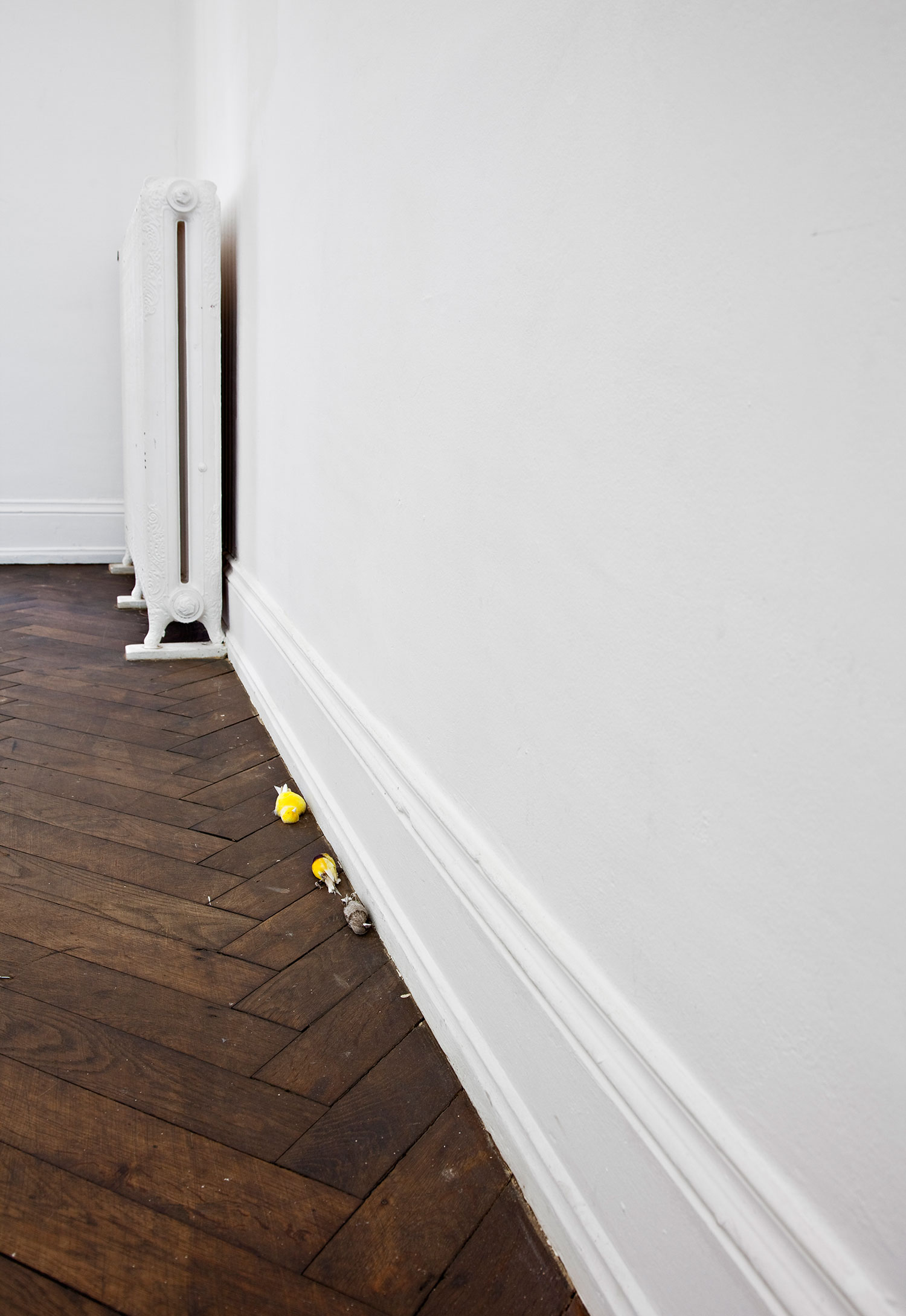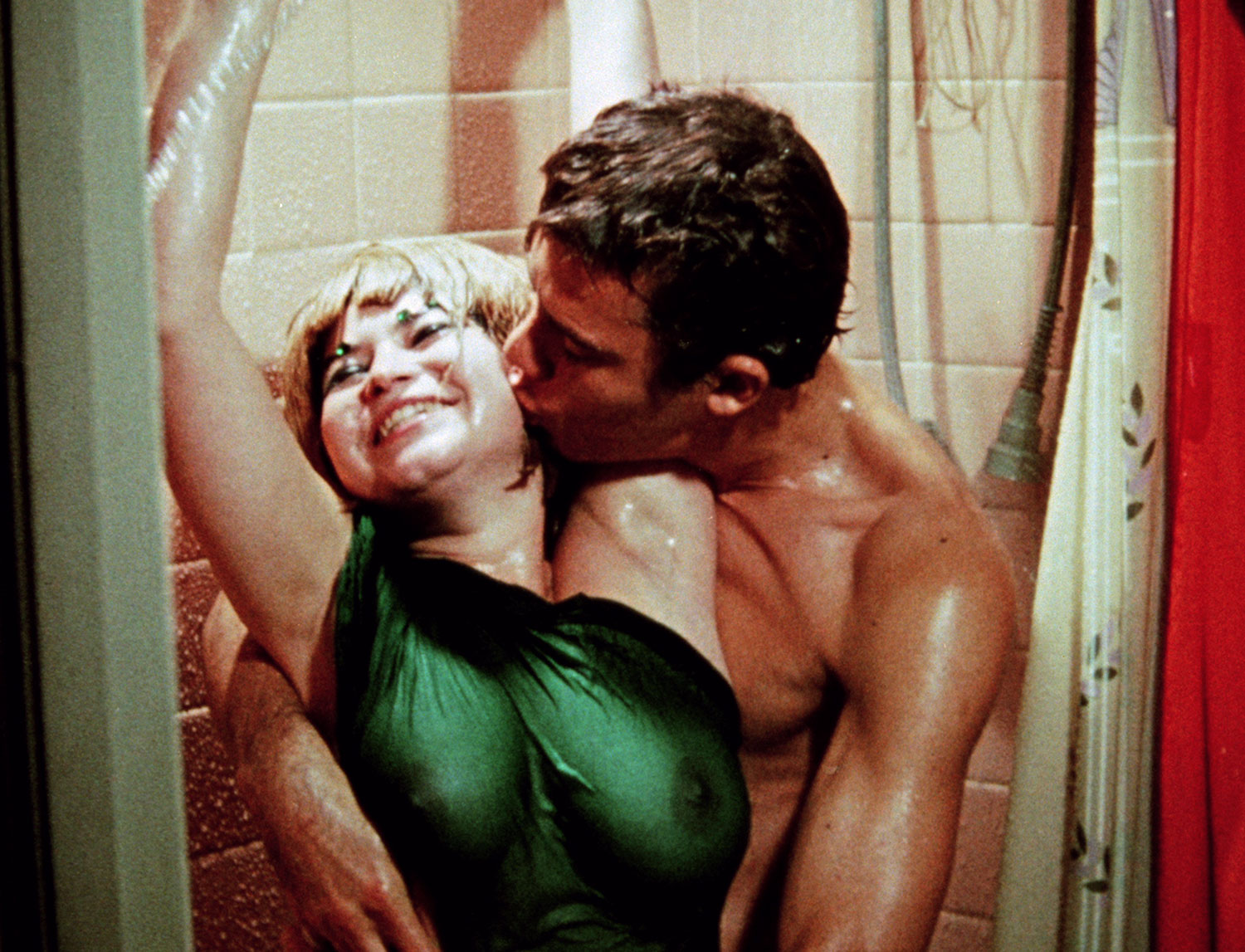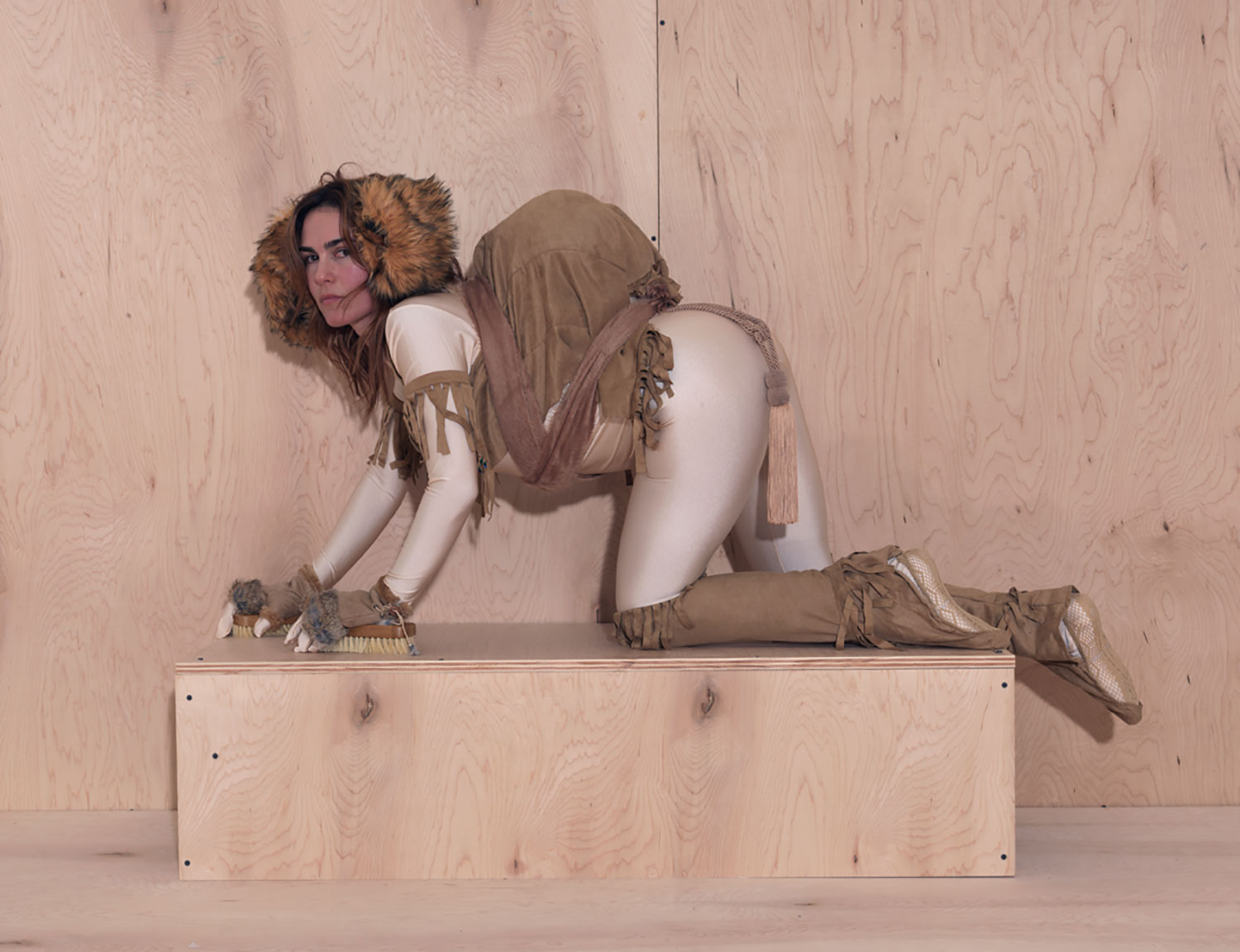
Vincent Szarek’s latest work, Heavy Bag (2012), is a symbolic talisman evoking an ostentatious excitement that combines a deep love for the material and a pronounced attention to pristine detail.
I have spent quite a lot of time observing this punching bag that hangs from the ceiling, surrounded by cold concrete walls and a cracked grayish floor. I imagine floating like a butterfly, sweating and fighting, stinging like a bee. But it is all in my imagination. The punching bag does not move, and neither do I; my opponent is invisible.
I then observe the detail of the surface, which confirms a technical mastery formed over years in the automotive industry — a knowledge that has even influenced iconic figures of the art world. Molded from a real punching bag, cast in rigid material, refined and then remolded and cast in aluminum, the piece appears as perfect as it could ever be. The artist has chosen to hang the bag with a steel chain like any found in an ordinary gym, except plated with a material that intends to express the vulgar appearance of success: 24k gold. The black automotive urethane paint finish on the bag itself gives the object a sensuous, obscurely opulent dimension. Black as pitch, sleek, brilliant, it recalls the shiny latex of S&M practices or the gloomy appeal of quirky Darth Vader memorabilia, thus invoking a blatant contemporary pop dimension. On the whole, it reminds one at once of an enormous phallus dangling pathetically from the ceiling, whose gushing virility is inescapable, projecting a poignant melancholic feeling of post-coital tristesse. Its immobility hides a latent concealed strength with a devastating impact. There are cracks on the floor of the room, and these are a silent warning for the viewer, anticipating what would happen if the bag could only fall, suddenly, unleashing its potential.
Casting everyday objects is a rather common methodology in the art world, but Szarek’s language — as has already been observed, for instance, regarding his work The Meaning of Life (2010), a sequence of words whose letters are made of sequin declaiming: “Faster horses, younger women, older whiskey, more money” — emphasizes a peculiar male-charged sensuality coupled with a subtle degree of irony. Heavy Bag exudes masculinity through necessary toughness. The accuracy of this work belongs to a limbo of precision in which the object itself becomes a meta punching bag, a platonic ideal of an industrialized archetypal image that reflects the core of the artist’s practice.

